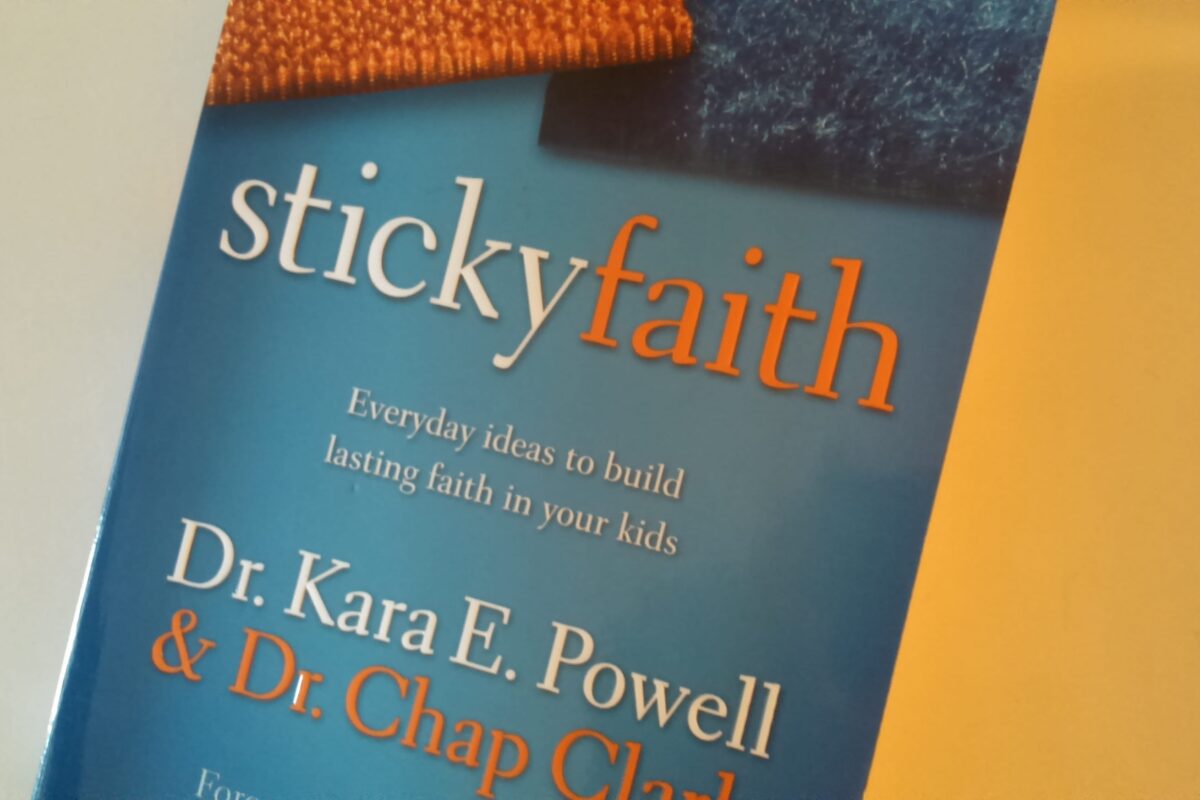Over the past year, I’ve taken part in a training tour, run by Scripture Union’s South-East Team, all about a book of research called Sticky Faith. This book is the summary of findings of research carried out in the States by the Fuller Youth Institute. They set out to find what things churches and families could do to help develop a lasting faith in children and young people. What they found isn’t rocket science, rather the research highlighted a range of fairly simple things that we can do to help faith stick.
Of course, when we’re talking about faith formation, we’re working in partnership with God. Jonathan Brooks reflected on this in a recent post – we plant the seed and others water it, but it’s God that makes it grow. However, the findings of the research explored what we can do as we work with God. Here are four headlines:
1. Shift from a behaviour-based gospel to a grace-based gospel
The research found that the impression many children and young people have of the gospel is one of obeying the rules: ‘do this, don’t do that’ (actually, mostly ‘don’t do that’)… And so, when they inevitably fall short of these rules, standards and expectations, they think that they’re not ‘good enough’ to be a Christian. We need to help them trust in Christ, rather than their own ability to follow the rules.
2. Shift from separating children and young people from the rest of the church to integrating them into the life of the church
While there is definitely a place for age-appropriate groups, a strong faith is formed when children and young people a part of an intergenerational community, worshipping God together. Faith is also strengthened when children and young people have friendships with adults in the church who are not their parents – they get to hear about other life experiences and chat about things without family pressures getting in the way.
3. Shift from a dry-cleaner view of parenting to partnering with parents
I wonder how many parents drop their children or young people off at a church group and then expect to collect a fully cleaned and ironed, perfect Christian at the end? Parents are the primary spiritual care-givers for their children, and we need to help them in this important task. Creating space in the home to talk about faith, read the Bible, discuss doubts and answer those tricky questions (that parents might rather not answer!) will help faith grow.
4. Shift from ‘social action tourism’ to long-term, relational, everyday service
The research team found that, even though short-term mission trips were good, faith was truly strengthened when children and young people exercised their faith in their own local area. Whether this is serving in their own church or going out to help in the community, the impact of showing God’s love and making a difference in their own neighbourhood can be great.
The Sticky Faith book is well worth a read and the website is a good place to visit for more stories and ideas. It’s an American book and so some of the ideas and stories will need to be translated into a British context, but there is a lot to help us as we think through how our churches and families and foster a long-lasting faith in our children and young people.
The challenge is: how do we change our culture in sustainable ways to help the faith of children to grow?
Alex Taylor edits the children’s and youth ministry blogs for the Diocese of London and is a fan of sticky toffee pudding.
